On Campus with Kaino: Making Your Net Work
April 19, 2010
I’m a student in the UC Davis MFA program and also a “returning” student who has seen a few hard knocks in the real world. As part of my mandate to address SDA student issues, I want to use this space to share insights that can inform and perhaps spare you from making some of the mistakes I’ve made. I hope you’ll comment and create a blog-shared dialog in return.
Each college seems to have its hidden quirks & perks–and we’ll explore these in future posts–but to begin with I wanted to get us ready for facing summers of internships, continued classes, or graduation and the real-world job search.
So my question to you is this: How well does your NET WORK?
Let’s cut to the chase: The best way to open doors to your future success is to network. Tapping people you know and asking them for recommendations for jobs, internships, opportunities overseas, etc., is the most productive way to turn your hazy future into a reality. This depends on networking locally, which spider-webs globally through the-who-knows-who process. And while internet platforms, social media and mobile apps help in the actual presentation of your image (try mashable.com for in-depth reporting on the latest practices) these are only as good as you are—F2F and in the flesh–not on paper or a webpage. Yes, someone can “find” you on your posted sites, but the first question to ask is “Do your actions match your words?”
The most important part of networking is training yourself to be professional–especially while in college classes–and I don’t mean just carrying a resume and business cards. Professionals turn off phones and iPods before being asked to or warned; they do not post compromising images of themselves or friends online and they demand the same in return; they give 110% to every moment and every project. They follow through on promises—and follow-up. These are the actions needed to build a reputation and personal brand that your contacts will want to share with others. Networking can work against you if your reputation is not stellar—and I’ve experienced both sides of this.
Only one student can be the top of each class, but all of us can do the things that build a good reputation—like active participation in class or conversation, attention to detail, courteous behavior, prompt arrival and well- planned projects. The top candidate for an opportunity is not always the top performer academically. The student who is easy to get along with, has strong people skills and communicates well is often the one who nets the job or award.
While getting your words and actions in sync, you can polish your online avatar via facebook, Linked-in and your profile postings on job-search sites to maximize your cyber presentation. This is where mashable.com can be a huge help. Instead of copying what everyone else does, go to this site and see for yourself the vast array of technologies and applications available. Find the ones that are the best match for you and your skills. Hire a professional website designer (or find a fellow student in graphics who is almost professional) and get second opinions before posting portfolios or uploading images for electronic resumes.
At UC Davis, our career center gives second opinions on many aspects of the job search along with free career assessment and free classes on job hunting. It is still under-utilized, meaning individual attention most of the time! Also, learn how to take a Skype interview with a professional background and lighting so you are ready to look good as soon as you are found (this is still on my list of things to do). And be careful to spread out the requests for recommendations: respect your precious pool of recommenders-and their time and work load.
The old saying that it takes a lifetime to build a good reputation and one foolish act to demolish it is certainly true. I’ll update that by adding that a blah web posting or resume is worse than none at all—I learned this the hard way. To network positively: practice professionalism daily; aim for 110% integrity; check out mashable.com and linkedin.com; run, don’t walk to your college’s career center; and take volunteer positions and smaller jobs on your way toward your big break.
Let me know how you are doing—and what has worked for you!
-Kaino
E. Kaino Hopper is currently pursuing her MFA at the University of California/Davis. A seamstress for many years, she designs an award-winning clothing line called It Works For Me for women with both lowered and full mobility.
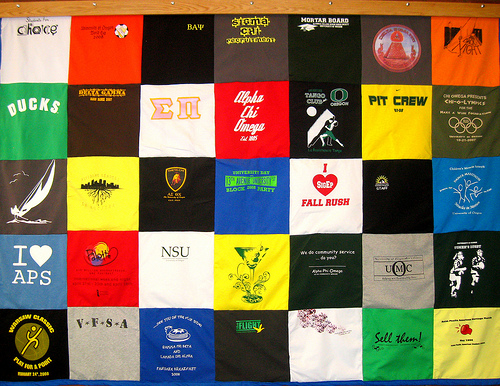
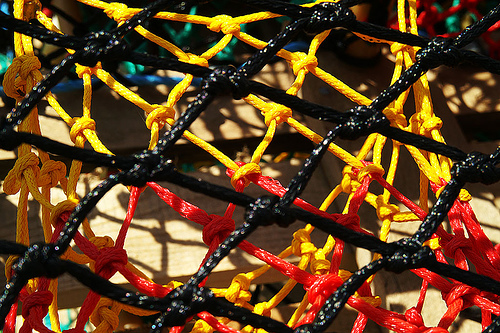
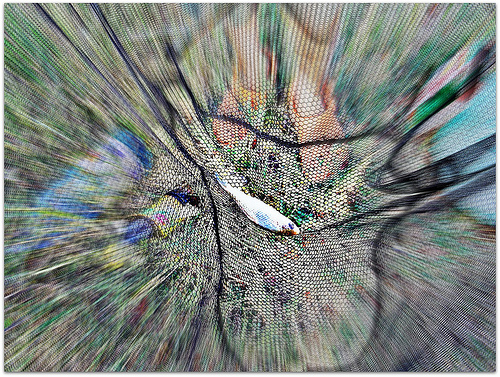

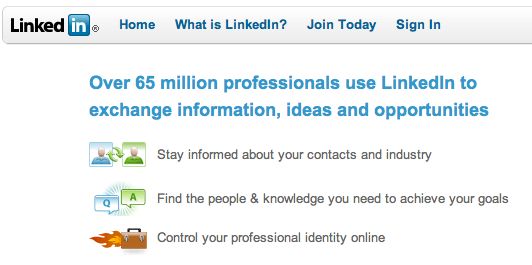
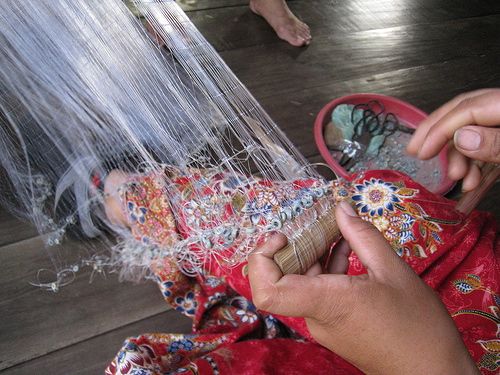

Related Blog Articles
Networking
Friday Fibers Roundup: Craft & Color
Networking
Friday Fibers Roundup: Embroideries
Networking
SDA Open Calls!